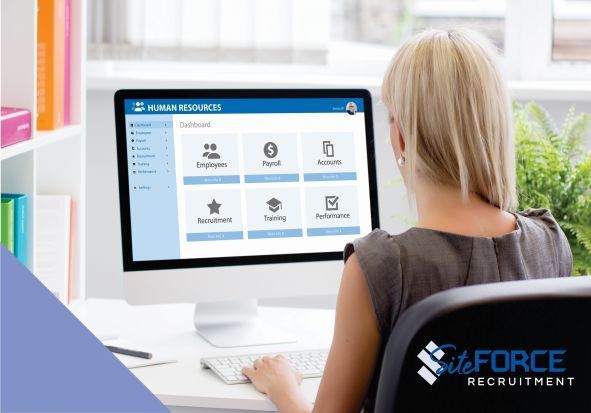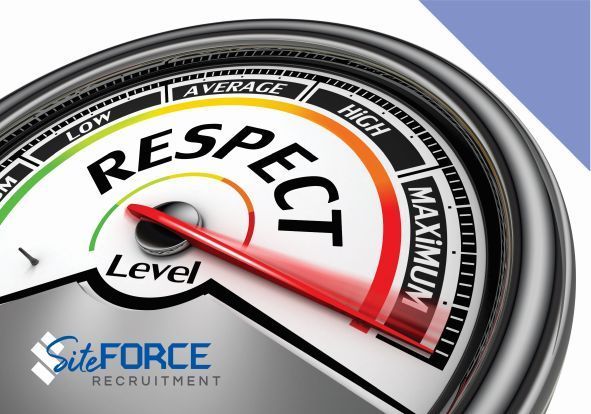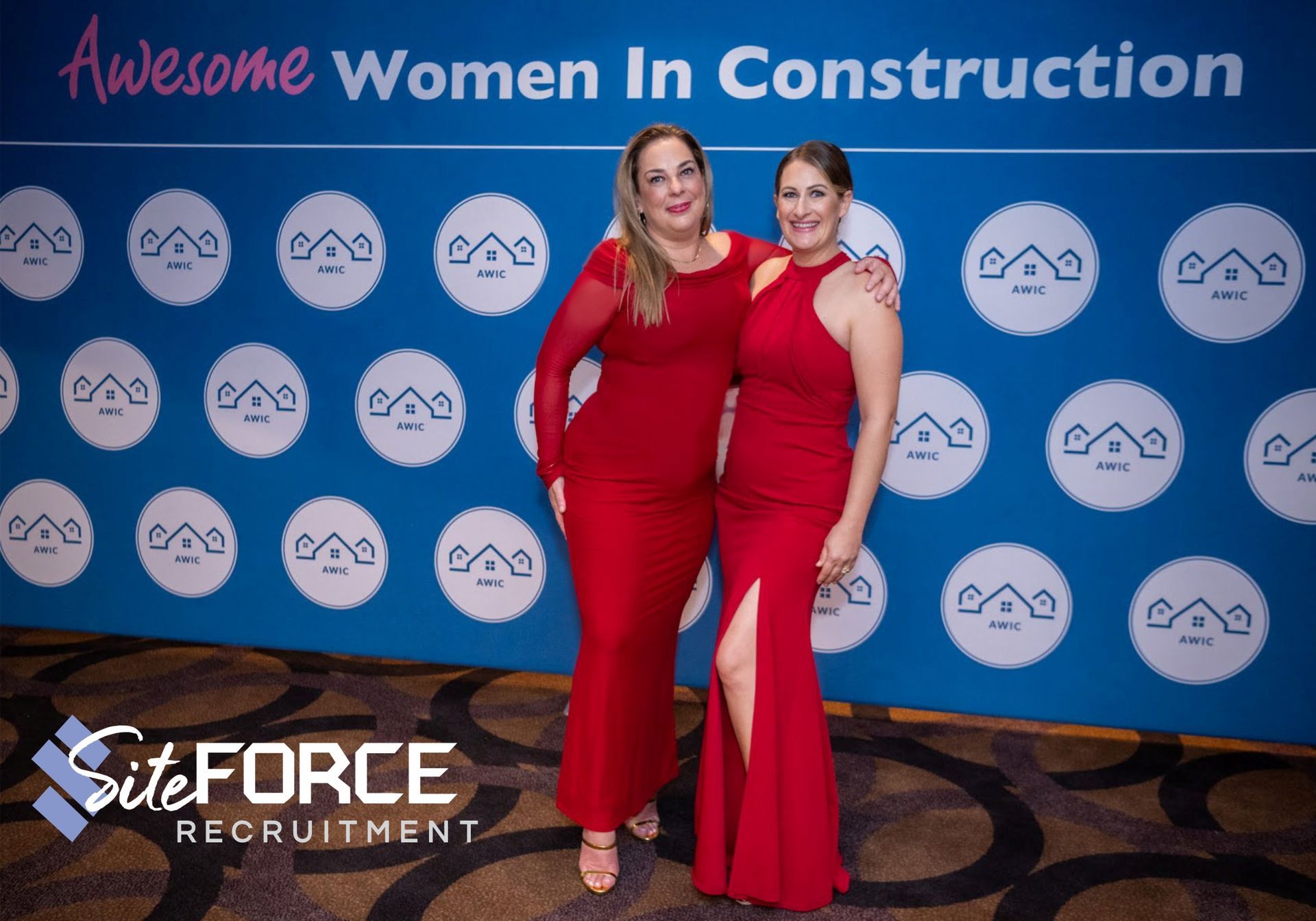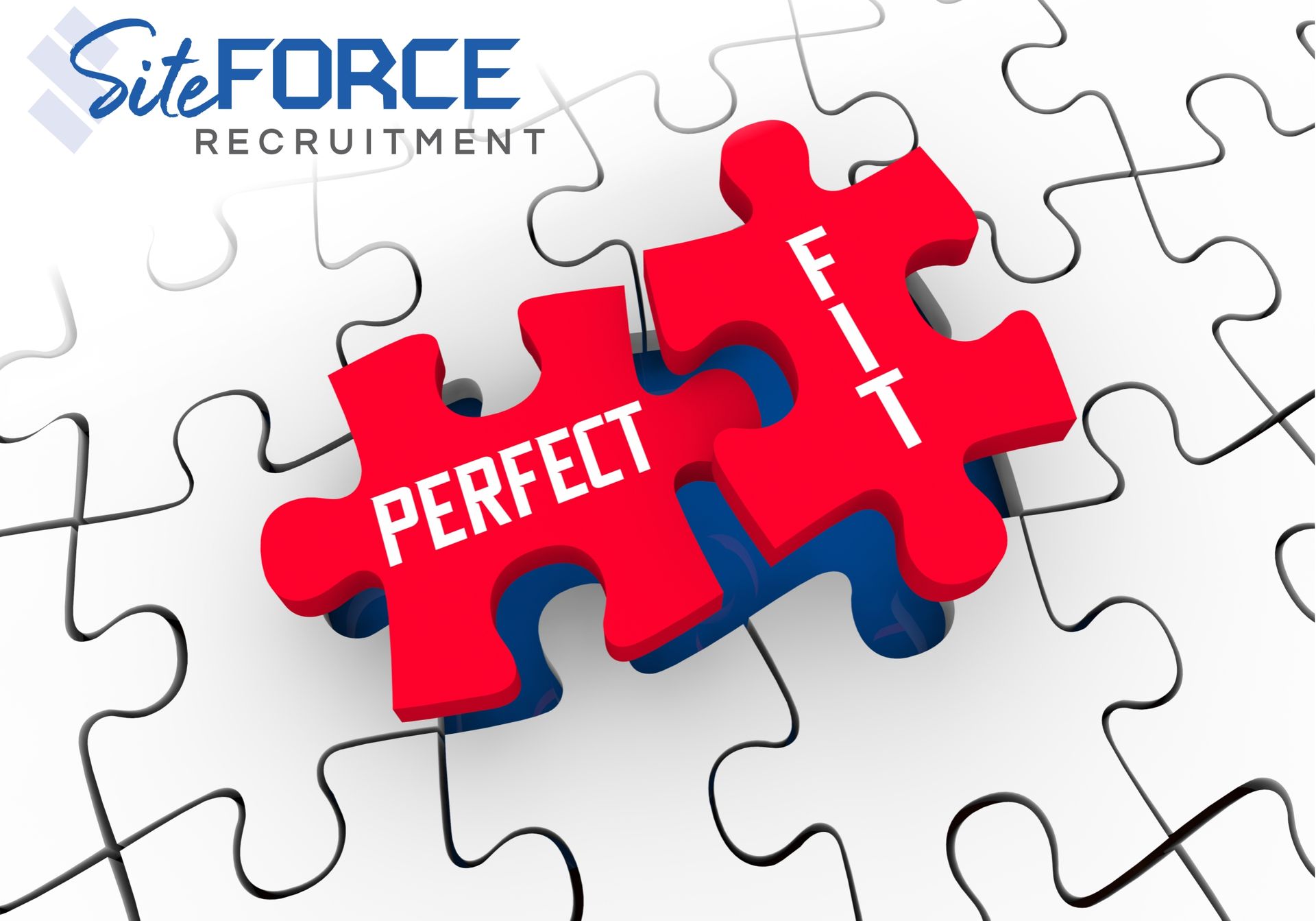WORKPLACE CULTURE: WHAT MAKES CANDIDATES AND EMPLOYERS CLICK?
The Art of Meaningful Conversations When Recruiting

Today, I want to share the story of a candidate I’ll call Cameron. He was a young landscaper who faced an unfortunate accident that resulted in a severe hand injury. This led to a lengthy period on compo while he grappled with both the physical challenges of rehabilitation and the emotional toll of his situation. Compounding his difficulties, the company he worked for ultimately closed, leaving him without a job to return to.
On paper, many employers might dismiss Cameron due to the stigma surrounding compo claims, mental health issues, and gaps in employment history. However, what I witnessed in Cameron was a remarkable strength and depth of character forged through adversity. He demonstrated reliability, resilience, honesty, and a strong willingness to learn. I gained these insights through in-depth conversations with Cameron, where I took the time to understand his personality, adaptability, resilience, motivations, aspirations and boundaries.
When Cameron was ready to re-enter the workforce, I confidently pitched him to an employer. Just last week, this employer told me with gratitude that Cameron was “one of the most outstanding employees he had ever encountered”. This placement has changed Cameron’s life, and also his employer’s life.
As a specialised recruiter, my role extends far beyond simply filling vacancies. It involves engaging in meaningful conversations that reveal the personality, values, motivations and aspirations of candidates and employers alike. By taking the time to understand each individual, we can uncover hidden gems and foster successful placements that benefit everyone involved.
Your Style for Meaningful and Impactful Conversations
Understanding these deeper insights allows us to discover hidden gems, unique skills, experiences and needs, that often go unnoticed without thoughtful questioning. I’ll share in this article a general outline in how to engage in impactful conversations with both candidates and employers, ultimately leading to better cultural fits and successful placements.
These questions are not meant to be delivered in a rigid, bullet-point format. After all, we’re not in a high-pressure interrogation. And you should adapt these to fit your own personality and style. Take the questions as a guideline for coverage in what you want from the conversation.
To engage successfully in these conversations, consider the following:
- Embrace a Natural Flow: Incorporate your questions in a cohesive, conversational manner.
- Know What You're Seeking: Identify the specific insights you hope to uncover in each situation.
- Tailor Your Approach: Adapt your questions to fit the candidate's personality, ensuring they elicit thoughtful and quality responses.
- Rephrase for Clarity: If clarification is needed, don't hesitate to rephrase your questions in different ways.
- Stay Focused on Business Needs: Keep your objectives in mind and ensure the conversation aligns with your recruitment goals.
- Listen Actively: Pay close attention for clues that may warrant deeper exploration.
- Trust Your Instincts: Recognise those moments when things click; this is often a sign of a great match.
Engaging Candidates: Discovering Hidden Gems
When speaking with candidates, especially in the construction industry, it’s essential to delve deeper than surface-level qualifications. While resumes provide a snapshot of skills and experience, they rarely capture what really makes a candidate tick.
21 Candidate Questions to Uncover Motivations, Aspirations, Cultural Attributes, and Boundaries:
1. What inspired you to pursue a career in construction / role?
- This question helps you understand the candidate’s passion for the industry and can reveal personal stories that highlight their dedication.
2. Can you describe a project you worked on that you are particularly proud of?
- This allows you to uncover unique skills, problem-solving abilities, and the impact they had on their team or project outcomes, providing insight into what they value.
3. What challenges have you faced in your career that significantly shaped your professional growth?
- This helps gauge resilience and adaptability while offering insights into the candidate's approach to overcoming obstacles.
4. If you could create your ideal work environment, what three things would it include?
- This question encourages candidates to articulate their preferences in a work setting, helping you identify whether their ideal aligns with potential employers.
5. What’s the most unconventional skill you possess that you think is valuable in this industry?
- This can reveal hidden talents or experiences that might not be directly related to construction but could provide unique advantages.
6. Who has been the most influential mentor or colleague in your career, and what did you learn from them?
- Understanding their influences can provide insight into the values and qualities they appreciate in leadership and teamwork.
7. If you could work on any project, past or future, what would it be and why?
- This question helps uncover a candidate’s passions and aspirations, guiding you in matching them with opportunities that excite them.
8. How do you typically celebrate successes, both personally and professionally?
- This question sheds light on how candidates acknowledge achievements, reflecting their values and attitude toward teamwork.
9. What hobbies or interests do you have outside of work that you feel contribute to your professional life?
- Understanding their interests can reveal transferable skills and how they might bring diverse perspectives to the workplace.
10. If we were to grab coffee after this chat, what would you want to talk about?
- This casual question invites candidates to share their interests outside of work, revealing aspects of their personality and what they enjoy discussing.
11. What’s a fun fact about you that most people wouldn’t guess?
- This can reveal unique attributes and experiences that could add depth to their character and work style.
12. How do you handle conflicts or disagreements within a team?
- This helps assess emotional intelligence and communication style, which are critical for team dynamics.
13. What motivates you to push through tough days at work?
- This question reveals their internal drive and what keeps them engaged during challenges.
14. What are your short-term and long-term career aspirations?
- This question invites candidates to articulate their goals and vision for their professional future.
15. What aspects of your work bring you the most satisfaction, and why?
- This helps identify what motivates candidates in their roles and can inform potential employer matches.
16. What are some aspects of work that you find particularly frustrating or demotivating?
- Understanding their dislikes can help ensure that the work environment aligns with their preferences and limits stressors.
17. Can you describe a situation in which you felt your boundaries were crossed at work? How did you handle it?
- This question explores how candidates perceive their personal boundaries and their methods for addressing boundary issues.
18. What is one thing you absolutely cannot tolerate in a work environment?
- This can reveal specific dealbreakers that can guide you in ensuring a good cultural fit with potential employers.
19. How do you like to give and receive feedback?
- Understanding their feedback preferences can help establish communication norms in future roles.
20. How do you envision your career evolving over the next five years?
- This question encourages candidates to think about their future paths and can reveal their ambitions and how they plan to achieve them.
21. What’s one skill you would like to develop further to help you achieve your career goals?
- This can help identify areas where the candidate seeks growth and what they view as essential for their success.
By asking these deeper questions, you can uncover unique aspects of a candidate's background, experience, and values that might not be apparent on paper. For instance, a candidate may have extensive experience in project management but could also have a strong commitment to sustainability that aligns with a potential employer’s values.
Understanding Employers: Uncovering Core or Unstated Needs
Just as it’s crucial to understand candidates, it’s equally important to engage with employers to uncover their core needs and what makes their businesses thrive. Often, employers have specific skills or cultural elements in mind that may not be explicitly stated in job descriptions.
21 Employer Questions to Uncover Employer Needs, Cultural Attributes, Core Values, and Boundaries:
1. What do you see as the most significant challenges facing your team right now?
- This allows employers to express their current pain points, guiding you in finding candidates who can address these challenges effectively.
2. How would you describe your company culture, using three adjectives?
- This succinct question can help clarify the company’s values and atmosphere, aiding in cultural fit assessments.
3. If your company were a person, what personality traits would it have?
- This unconventional question encourages employers to think creatively about their organisation, revealing underlying values and characteristics.
4. What qualities do you value most in your team members?
- This highlights the specific traits that align with the employer’s expectations, providing insight into how to evaluate candidates beyond their technical skills.
5. Can you share a success story from your team that reflects your company’s values?
- Success stories reveal what the company prioritises and can inform you about the kind of candidates who would thrive in that environment.
6. If you had to choose one lesson from a past failure, what would it be, and how has it shaped your current approach?
- This question provides insight into the company’s learning culture and openness to growth, which can be vital for prospective candidates.
7. What skills do you think will be essential for your business in the next five years?
- This encourages employers to think strategically about future needs, allowing you to identify candidates who can grow with the company.
8. How do you celebrate team achievements and milestones?
- Understanding how an employer acknowledges success can provide insight into their approach to motivation and team dynamics.
9. What is your preferred communication style when interacting with team members?
- This question can reveal the company’s culture of communication and help assess how a candidate might fit into that environment.
10. What initiatives do you have in place to promote diversity and inclusion within your team?
- This shows the employer's commitment to fostering an inclusive environment, which can be a significant draw for candidates looking for progressive workplaces.
11. If you could describe your team’s spirit in one word, what would it be?
- This question can help identify the collective attitude and energy within the team.
12. What’s the most surprising thing you’ve learned about your industry recently?
- This can reveal the employer’s openness to change and how they stay informed about industry trends.
13. What are some things you’ve encountered in past employees that negatively impacted your team?
- This question can help pinpoint specific behaviours or traits that are considered undesirable in the workplace.
14. What is one thing you absolutely cannot tolerate in your team or workplace culture?
- This question reveals boundaries that are important to the employer and can guide the search for candidates who align with those values.
15. How do you envision your company contributing to the community?
- This question reveals the employer's commitment to corporate social responsibility and community engagement.
16. What do you hope your employees take away from their experience working with you?
- This question helps identify the employer’s aspirations for employee development and satisfaction.
17. If you could change one thing about your workplace culture, what would it be?
- This provides insight into the employer's self-awareness and commitment to continuous improvement.
18. How do you ensure that your team remains aligned with the company’s vision and goals?
- Understanding their approach to alignment can help gauge how effectively they communicate and motivate their team.
19. What role does feedback play in your management style?
- This question uncovers the employer’s approach to communication and development within the team.
20. What boundaries do you set to maintain your work-life balance, and how do you encourage your team to do the same?
- This question reveals how employers view personal boundaries and their approach to maintaining a healthy work culture.
21. What are your long-term goals for the company, and how do you see your team contributing to those goals?
- This question invites employers to share their aspirations, helping candidates understand how they might fit into the broader vision.
By asking these questions, you gain a clearer picture of the employer's needs and discover unique aspects of their organisational culture that can inform your recruitment strategy.
Finding the Right Cultural Fit
Ultimately, the goal of these conversations is to identify on a deeper level, candidates and employers who align well in terms of values, motivations, and work styles. By understanding what makes each party tick, including their backgrounds, motivations, aspirations and soft skills, you can make more informed decisions that lead to successful placements.
This includes working with and thinking ‘out of the square’ to find those unique gems, so you can facilitate connections that lead to long-term success and satisfaction for all parties involved. All so you can also say “this person is amazing”.
Our Superpower
Our leading 'superpower' is attracting and retaining quality team members who share our values of honesty, integrity, diligence, and service, allowing us to deploy quality team members on client sites quickly.
Our team member's superpower is being motivated, prepared and ready to enthusiastically contribute to the projects at hand, more than just a pair of hands.
Related articles:
Read other informative articles for both employers and workers at: https://www.siteforcerecruitment.com.au/blogs
Chantal Penny is the Director with Superpowers of SiteForce Recruitment. A thought leader in the industry, Chantal, based on her expertise and industry perspective, offers unique guidance, inspiration, and influence in the industry. Chantal Penny is also a thought leader in the industry with her Podcast, Talent Instinct, which is available at:
https://talentinstinctpodcast.libsyn.com/site
At SiteForce Recruitment, we specialise in labour-hire and permanent recruitment in the construction industry. We are committed to valuing people, safety and wellbeing, collaboration, trust and, of course – results!
CONNECT with us via our contact page or bookings links on our website if you are looking to recruit for, get your dream job, or join our amazing labour force team.











